In Graz, Sustainability Starts with Community
By Daniel James Clarke

“Until recently, these two districts had a bad reputation,” Ruth Nezmahen, my local guide and Lend-residing expert tells me as we bask in the autumn sunshine coating the cafes of Lendplatz Market.
“My grandmother-in-law warned me about moving here,” she laughs as we take another sip of Sturm, a partially fermented wine hailing from the surrounding Styrian vineyards. Around us, skateboarders practised tricks, ochre-hued pumpkins were piled high on market stalls, and a temporary stage for an evening concert was being erected.
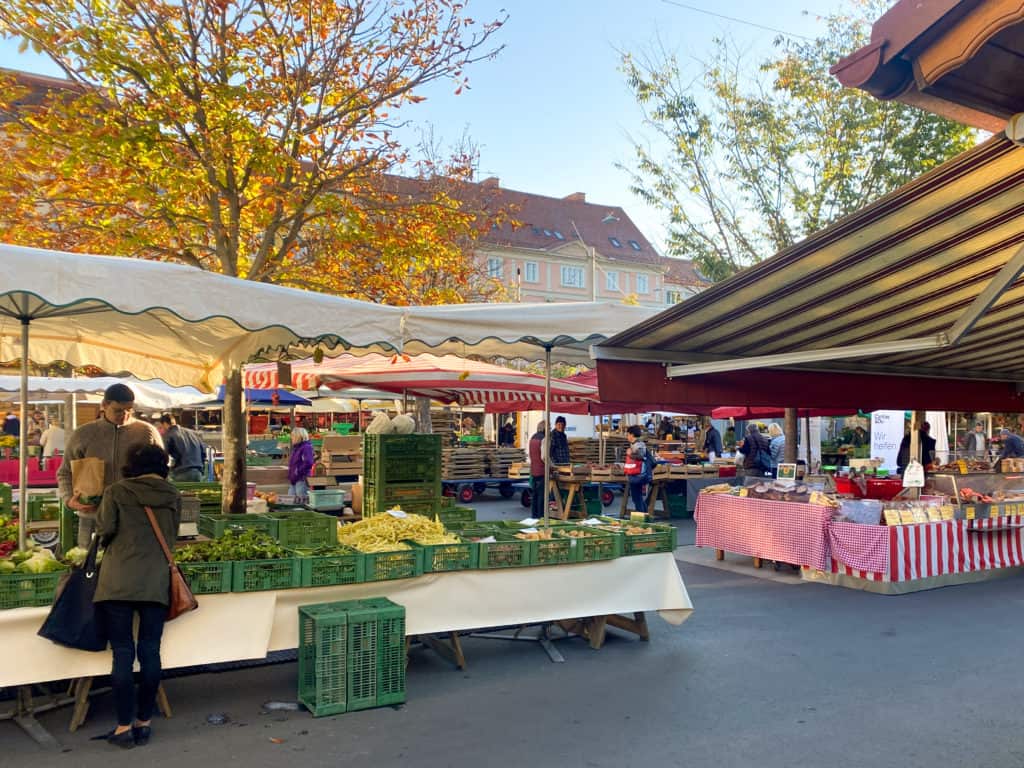
This calm and friendly picture made it hard to take Ruth’s words seriously. However, having just completed her ‘Lust and Vice’ walking tour of the Lend district – featuring historical scandals, crimes and sex-charged stories – it wasn’t impossible to believe that these storied neighbourhoods had once been a world, not just a river, apart from Graz’s elegant UNESCO-listed Old Town.
Nowadays, Graz is forging ahead with a new story, a tale firmly rooted in sustainability. While for many cities, this merely means free public transport, green spaces, and water bottle refill fountains – of which Graz can boast the lot – here, it’s a little more nuanced. Community is at the forefront of Graz’s grand visions for a better future, with government and private initiatives focused on anything from employment opportunities and meat-consumption reduction, to reusing rather than recycling.
Thankfully, for us as travellers, being sustainable in Graz is far from a chore; the hard work has already been done for us. Becoming a temporary member of this passionate community is as easy as eating well or buying a not-so-typical souvenir. But first, you might need to stray away from the most famed attractions in search of more local neighbourhoods.
Check-in with a community-minded conscious
Graz’s Old Town differs from many of Europe’s historic neighbourhoods, in the sense that it hasn’t been tourism-turbo-charged. With only around 6000 beds for visitors, the city is far from being overrun. This has allowed the medieval streets and magical courtyards to remain a place for residents rather than a fairytale-style tourism town. From restaurant menus to community events, such as courtyard salsa classes in summer, you’ll quickly notice that the city’s classical core hasn’t been sold out to souvenir stores.
Still, the desire of us as visitors to ‘live like a local’ has started to present problems in two of the city’s most up-and-coming neighbourhoods: Gries and Lend.
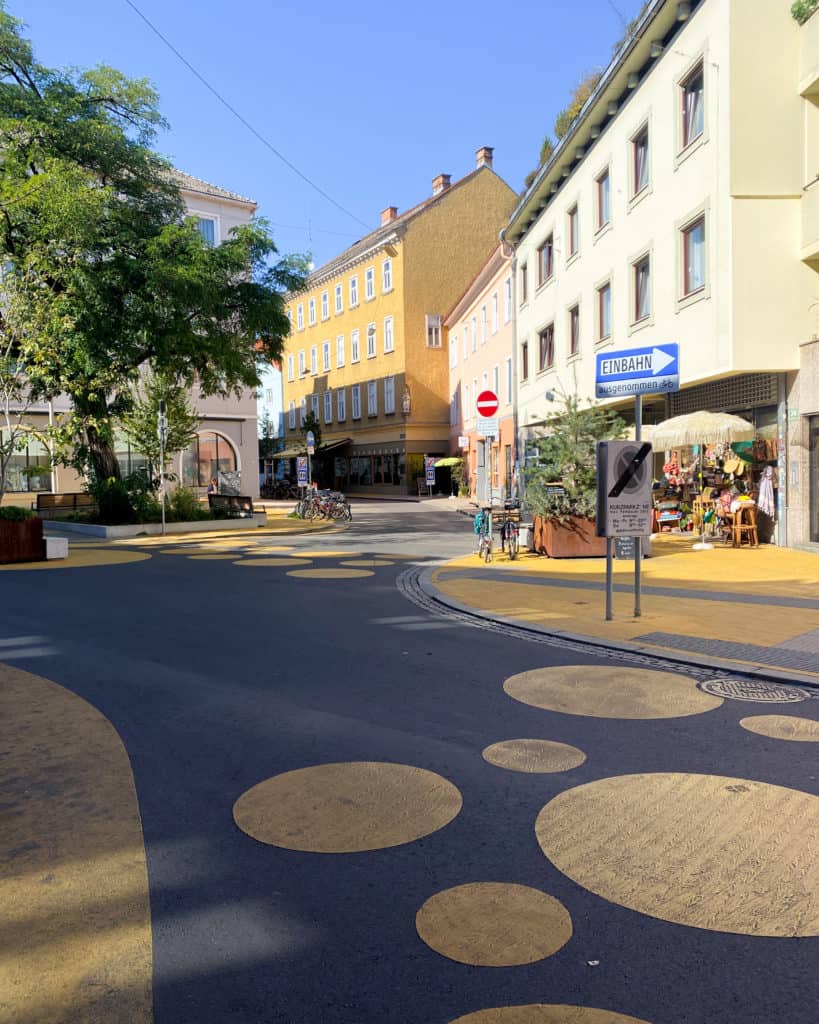
For decades, these districts across the River Mur were often avoided by both Old Town dwellers and visitors. In recent years, however, gentrification has crept in. The opening of the alien-like Kunsthaus (modern art museum) and the Murinsel, an artificial floating island-cum-bridge – both of which arrived as part of the city’s crowning as European Capital of Culture in 2003 – contributed to the changing face of the districts. But, it’s the increase in rent prices partly caused by short-term tourist accommodation which is exacerbating the issue.
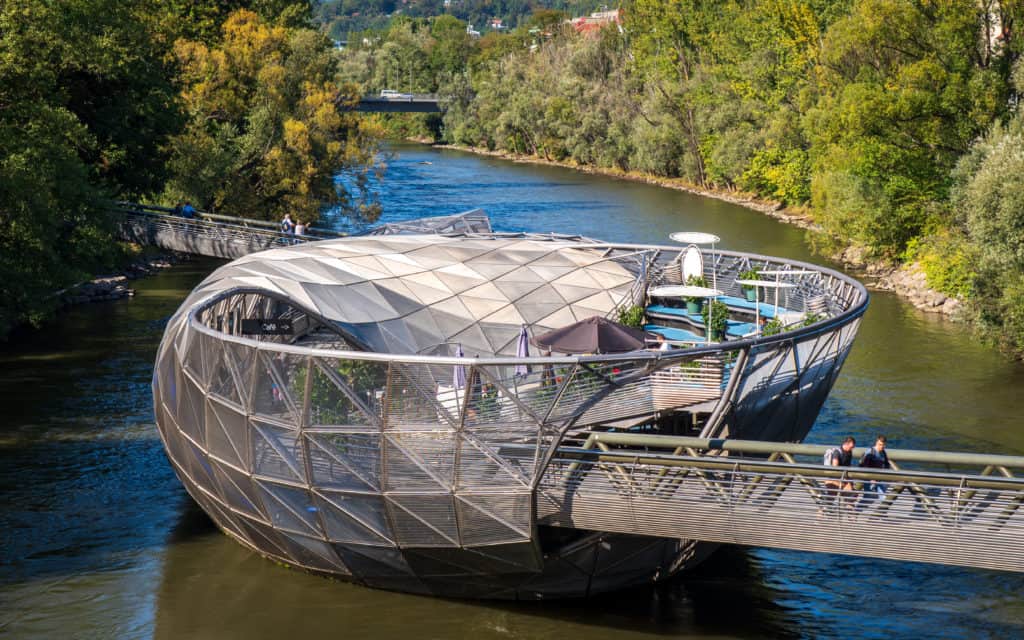
Choosing a traditional hotel, such as the third-generation family-run Hotel Gollner – it even has a resident dog – is one of the easiest ways to enjoy a warm welcome to the city and help mitigate the impact of investment-style tourism accommodation. Of course, this isn’t just a Graz problem; it’s occurring in many major cities worldwide.
Celebrate with the community in a sustainable way
Regardless of where you stay in Graz, there are plenty of chances to connect with and celebrate the local communities. Grassroots groups have been promoting Gries and Lend’s creativity for decades, and the invitation is open to all.
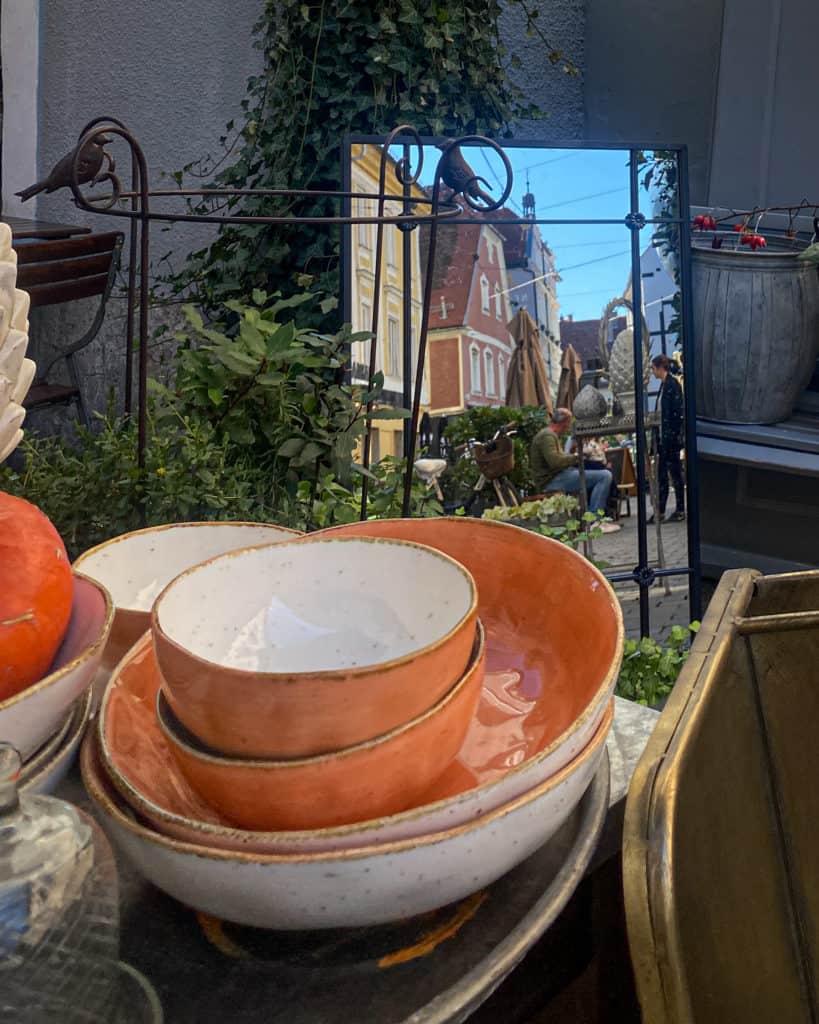
Luckily, the dates of my autumn visit to Graz coincided with one of those special events: Grieskram. Founded by a local hairdresser as a neighbourhood festival, the event has stayed true to its roots. Every September, the streets of Gries celebrate all that is great about the community. From street stalls of flavoursome foods and local artists’ designs to resident bands and overflowing bars, it’s a date to mark in your diary if you’re visiting Graz during fall.
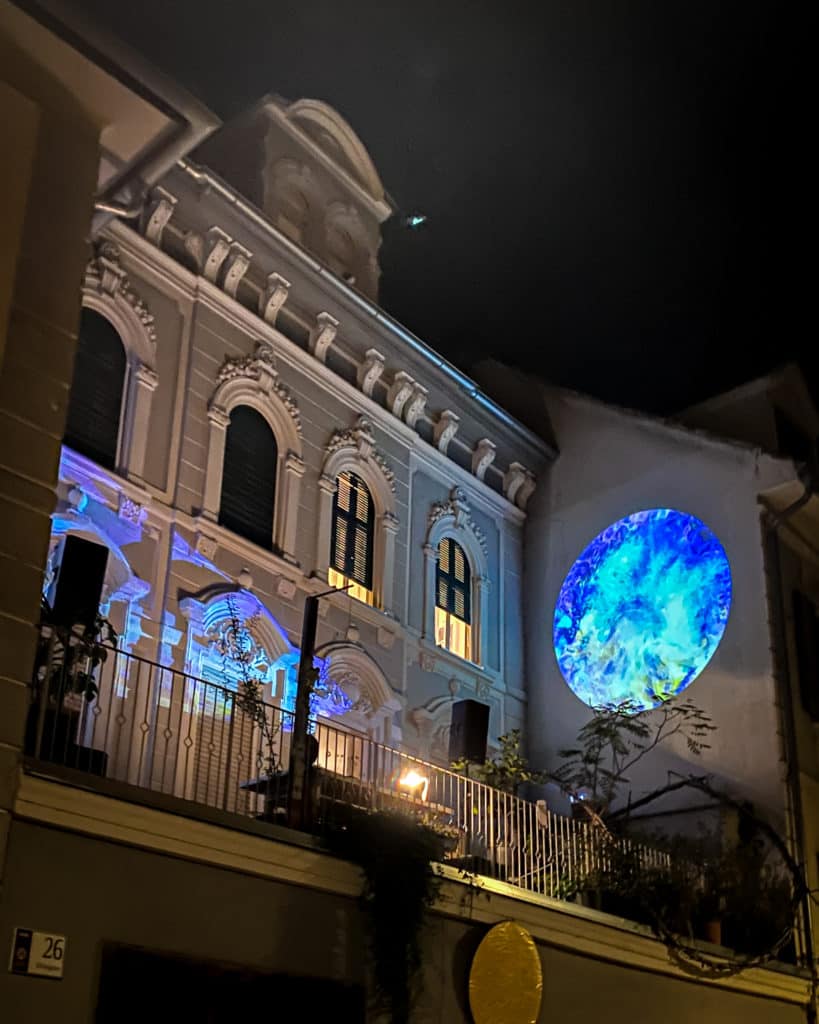
Likewise, Lend’s residents also champion their district at Lendwirbel’s events. With a manifesto focused on equality, respect and human rights, these neighbourhood celebrations of openness, community and creativity bring together local businesses, artists, and residents for a year-round events programme. Music, culture, cuisine, and art are all represented, and open-minded travellers are more than welcome to heed the invite.
For another peek into how creativity and community collide in Graz, peek into Gries’ Andra Kunst. At first glance, you might assume this graffiti and art-work strewn church has been deconsecrated. Yet, this is very much still a place of prayer, complemented by community-focused contemporary culture.
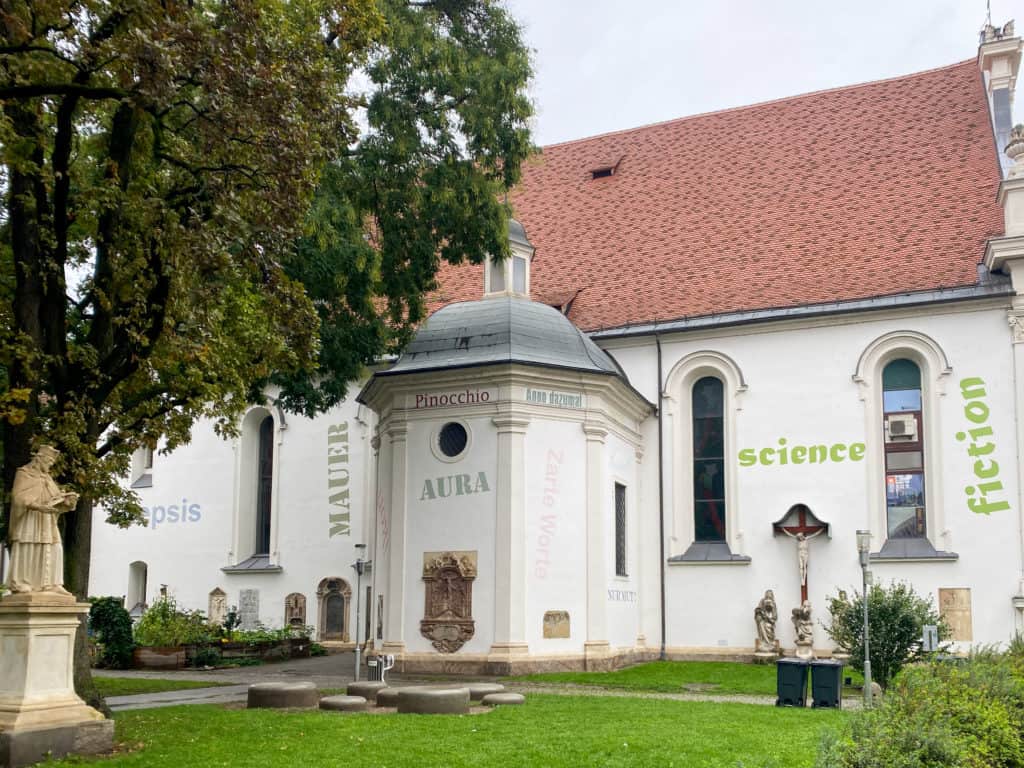
Devour delicious dishes while inadvertently doing good
Graz and the surrounding Styrian farms are esteemed for their culinary scene. Here, farm-to-fork is a staple rather than a buzzword.
Thankfully, that means eating well in Graz is a given, as are the green credentials. Organic, eco-friendly, and locally-sourced dishes are a bona fide standard. Not content with just serving sustainable recipes, many of Graz’s restaurants and cafes also feature community-focused initiatives on their menu.
Hummel
At Hummel, a women-owned Levantine cuisine restaurant, seasonal low-waste mezze plates rule supreme. On arrival, you can expect a warm welcome from the passionate team led by Anna, Franz, Jana, and Simon.
“The idea is we all gather around one table and share, and you can trade amongst yourself,” Anna tells our communal counter as dish upon dish are placed alongside the recycled napkins. Sourcing their supplies from regional small and medium-sized organic producers, Hummel is guilt-free dining at its best. In fact, it’s impossible not to aid the zero-waste concept; no one could leave a mouthwatering morsel on these plates.
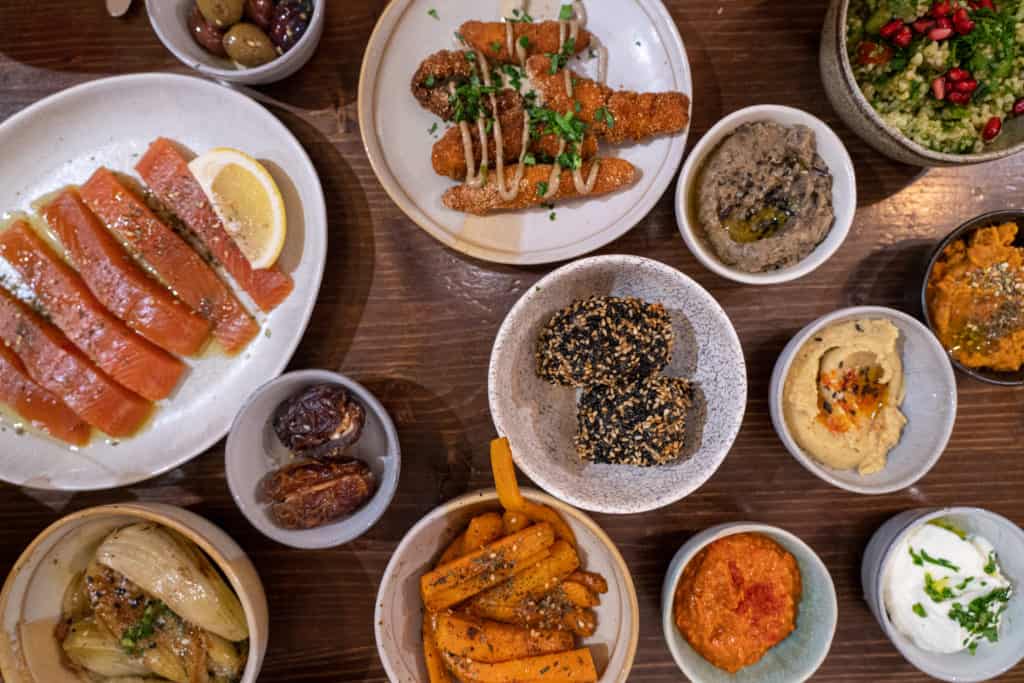
PANE
Across the street, master baker Martin Auer gives bread ‘a second chance’ at PANE. Here, you can buy yesterday’s bread at half price. Yet, it’s not just this kitchen staple that is given another opportunity when you make a picnic purchase. Established as a charitable association, all proceeds of the bread – Auer personally covers the operating costs – get donated to local causes. Past recipients have included children-focused charities such as SOS Kinderdorf and Steirer mit Herz.
Farmers’ markets
To complete your picnic – Graz’s leafy Stadtpark Graz is a great place to savour it – head to one of the city’s fresh produce markets. With hundreds of urban farms on the city’s fringes, it’s no surprise there are more than a dozen farmers’ markets in the city.
Lendplatz, moments from the river, or Kaiser-Josef-Platz, tucked away behind the opera house, are my favourites. The chance to buy direct from the growers will undoubtedly make the local specialities such as Kürbiskernöl (pumpkin seed oil), Pöllauer Hirschbirne (pears), or seasonal wild strawberries taste even better.
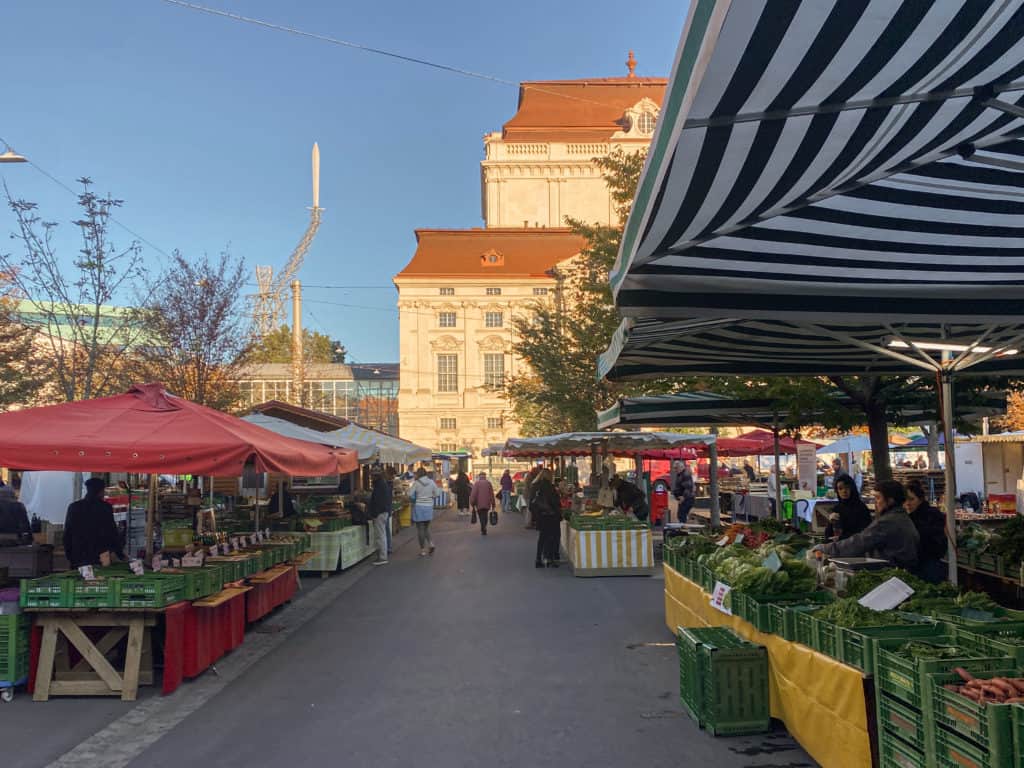
Bo Suppe
On chiller days, consider the heart-warming hole-in-the-wall style Bo Suppe. Not only are the globally-inspired but locally devised zero-waste soups delicious and organic, but Arnd Hoffmann, the founder with a background in social work, offers support for children with special needs.
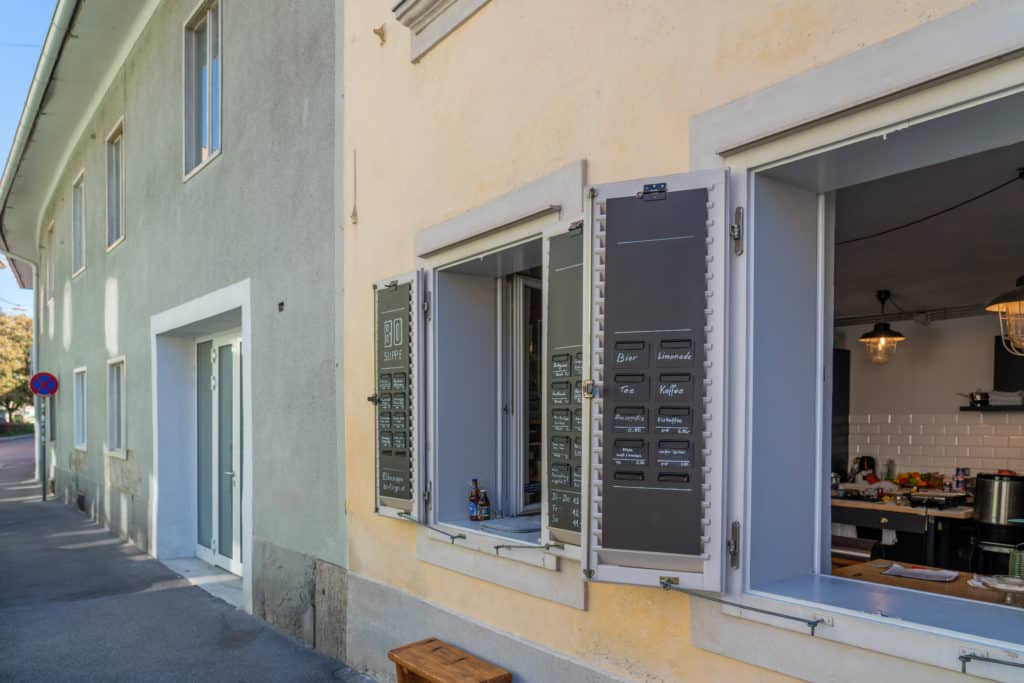
Shop social-impact souvenirs and forward-thinking fashion
Souvenir shopping in Graz can leave a much longer-lasting impact than bringing back a fridge magnet. And with a bounty of independent social-impact stores, you’ll want to arrive with space in your case.
If you’re a fan of upcycled fashion, venture to tag.werk. Founded in 1999, this youth employment project teaches creative skills. Inside, waste plastics such as tarpaulins are given a second lease of life as backpacks and other accessories. Similarly, nearby Offline Retail is the place to pick up quality second-hand and vintage clothes. Like tag.werk, Offline offers low-threshold employment opportunities and workshops funded by the store’s sales.
Should you prefer fresh-from-the-rack designs, seek out Susanne Huber’s brand Peaces. A Styrian native, her hand-printed garments are crafted from vegan and organic fabrics. Some even use forward-thinking Tencel, a wooden pulp material manufactured in the small Austrian town of Lenzing.
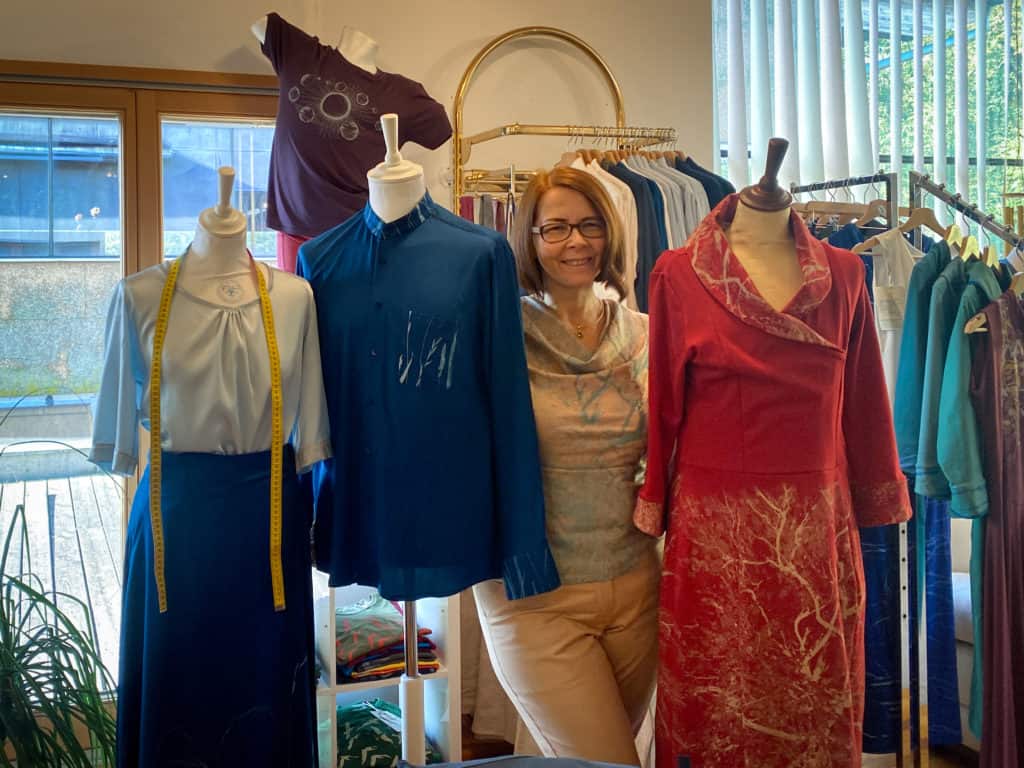
As I admired Huber’s screen printing work in her atelier, I questioned the business plans for the future.
“‘I have to know who made these clothes,” Susanne answered without a beat. “I couldn’t expand the business if it meant moving the production out of the country”, she continued. Her words summarised my conversations with many of the city’s store owners.
Sustainability isn’t a trend here, nor a money maker; it’s simply a way of life. And, like the city itself, the locals’ passionate pride is understated rather than boastful, even if the residents’ goals are as grand as the city’s majestic courtyards, clock tower and armoury.
Graz is a city to savour and explore slowly – the sustainability part is second nature.
Bio
Daniel James Clarke is a British travel writer living in Portugal. A passion for sustainability and ‘green’ cities led him to Graz – on an overnight train, of course – and it firmly cemented his love for Austria. Happiest when connecting with the local community, slow travelling, and soaking in a city away from the main sights, Dan loves to dive deeper into any destination he visits. Read more about his travels on Dan Flying Solo.


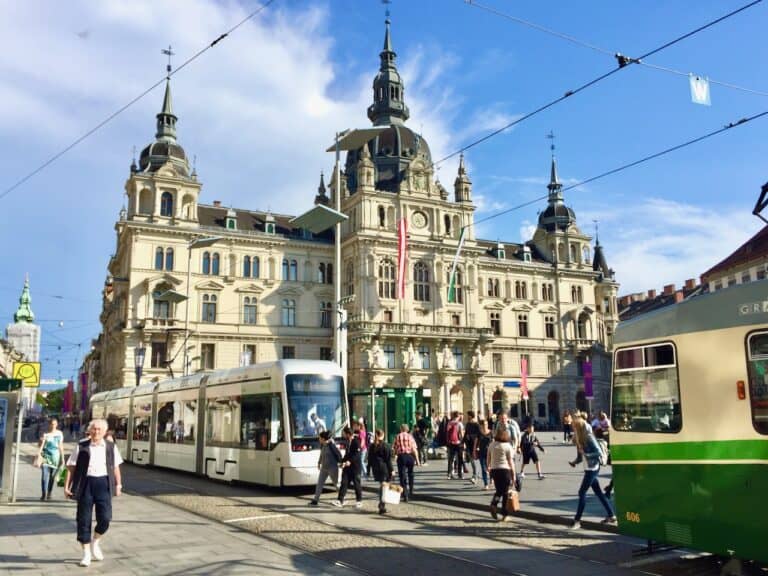

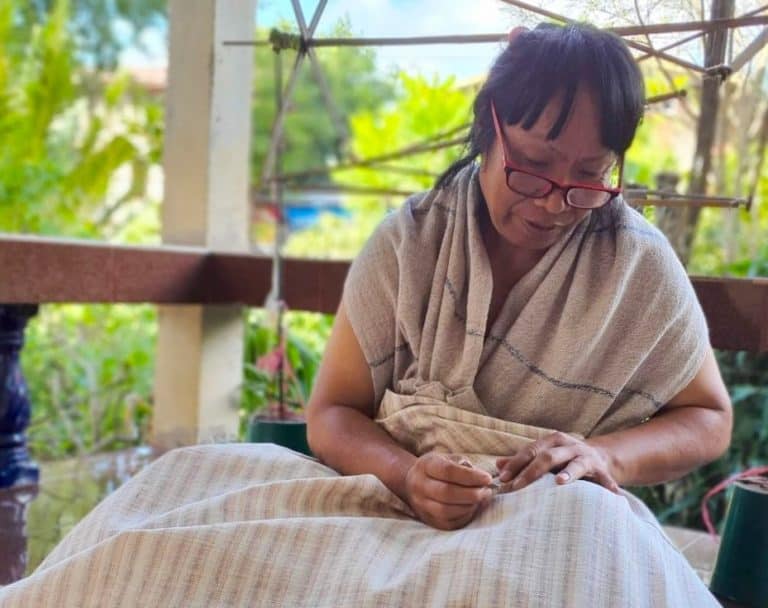
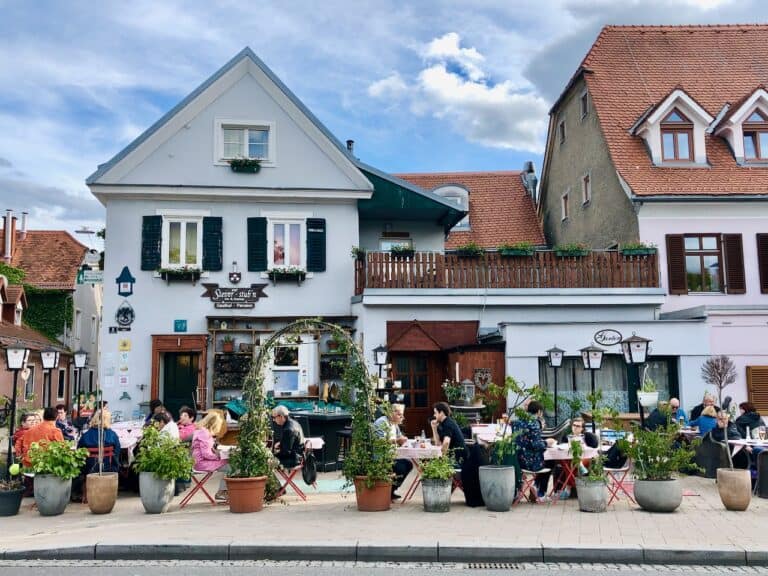
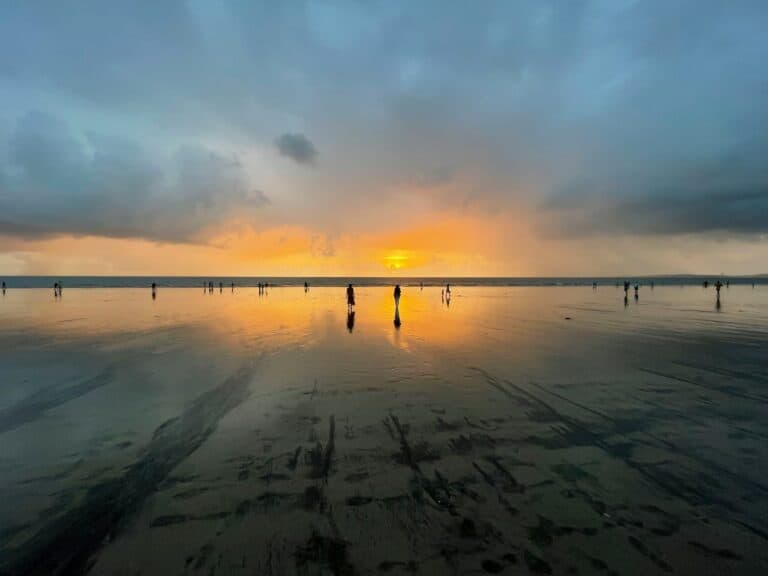
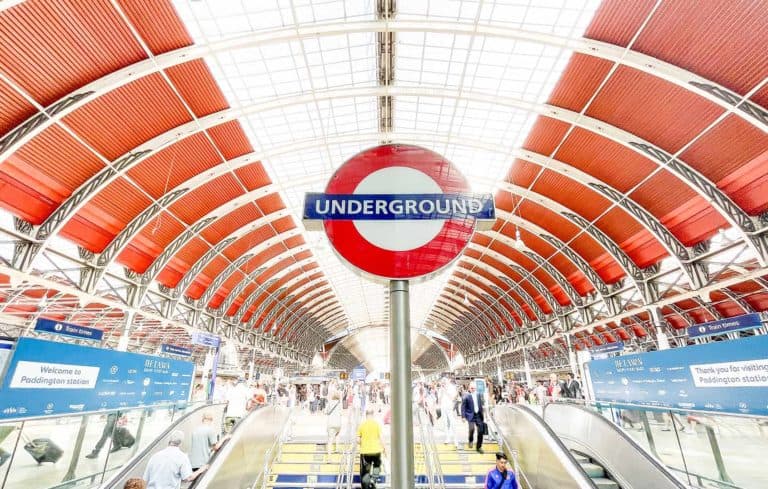
3 Comments
Comments are closed.